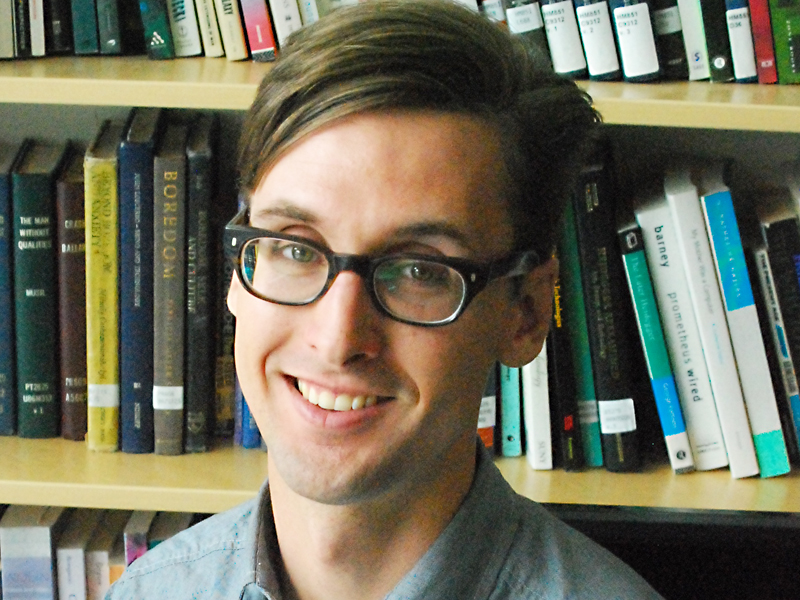Social media causes boredom (and vice versa)
- Amanda Farrell-Low

Who would have thought that goofing around on the internet would lead to cutting-edge research and gainful employment? Probably not Liam Mitchell, but that’s precisely where the UVic grad found inspiration for his recent PhD.
Mitchell originally came to UVic thinking he would do his research on consumer culture and how it related to German philosopher Martin Heidegger’s theories on boredom—until he found himself thinking about the times when he found himself the most bored.
“Paradoxically enough, it’s when I’m most engaged with something online,” explains Mitchell. “I will go online, click through links for minutes and then hours and then all of a sudden, an afternoon is gone. Having been interested and engaged that entire time, at the end of it, I don’t remember a thing about the entire experience, and I’ll be tremendously bored.”
So Mitchell decided to switch gears and apply Heidegger’s ideas about boredom to social-media use—in particular, two social media platforms that require their users to be relatively anonymous (Reddit and 4chan), and one that encourages users to provide more personal information (Facebook).
“Because I was making that theoretical connection, I decided this was going to be much more significant and much more interesting for me to talk about than something as abstract as consumerism,” he says.
In his dissertation abstract, Mitchell concludes that, while all three of the sites are used differently, they “express different aspects of the mood that holds sway over the internet” and that “social media is both the cause of, and solution to, boredom.” The boredom he associates with social media is giving rise to an increasingly dominant view of the world, he argues, that is characterized by a “preoccupation with preoccupation.”
He wasn’t the only one who felt the research was significant. When he formally receives his PhD in political science from UVic’s Cultural, Social, and Political Thought (CSPT) Program at this month’s convocation, Mitchell will be flying in from Peterborough, Ontario. That’s because a week after he presented his dissertation this past June, Mitchell secured a tenure-track assistant professor position in Trent University’s Cultural Studies department.
“Most people struggle for years; I think many people don’t get jobs at all, or they will get jobs teaching one course here and one course there while trying to publish and get some profile recognition, so I’m exceedingly lucky,” says Mitchell. “The position they were advertising at Trent was for someone who could do that kind of humanities-based theoretical study of media and someone who had some experience teaching that stuff, and I had both of those things. It was just a perfect fit.”
To say that Mitchell’s research and teaching has to stay up-to-date on online trends is an understatement. At Trent, he is teaching an introductory course in their media studies program—which he describes as a “much-extended” version of the Technology and Society course he taught at UVic—and needs to constantly be updating his examples.
“Where I was talking about Kony 2012 in the spring, I now have to be working with something new, because, believe it or not, people don't even remember Kony 2012 anymore. It’s almost ancient history,” he says. “It means that not only is the teaching exciting because we are working with contemporary material, but I have to modify my ideas, too.”
During his time at UVic, Mitchell also helped found a political theory publication called Peninsula: A Journal of Relational Politics, which has just published its second issue, and you will still find his name among the contributors. So while he may be across the country these days, Mitchell’s UVic ties—and legacy—remain strong.
Photos
In this story
Keywords: doctoral research, student life
People: Liam Mitchell



